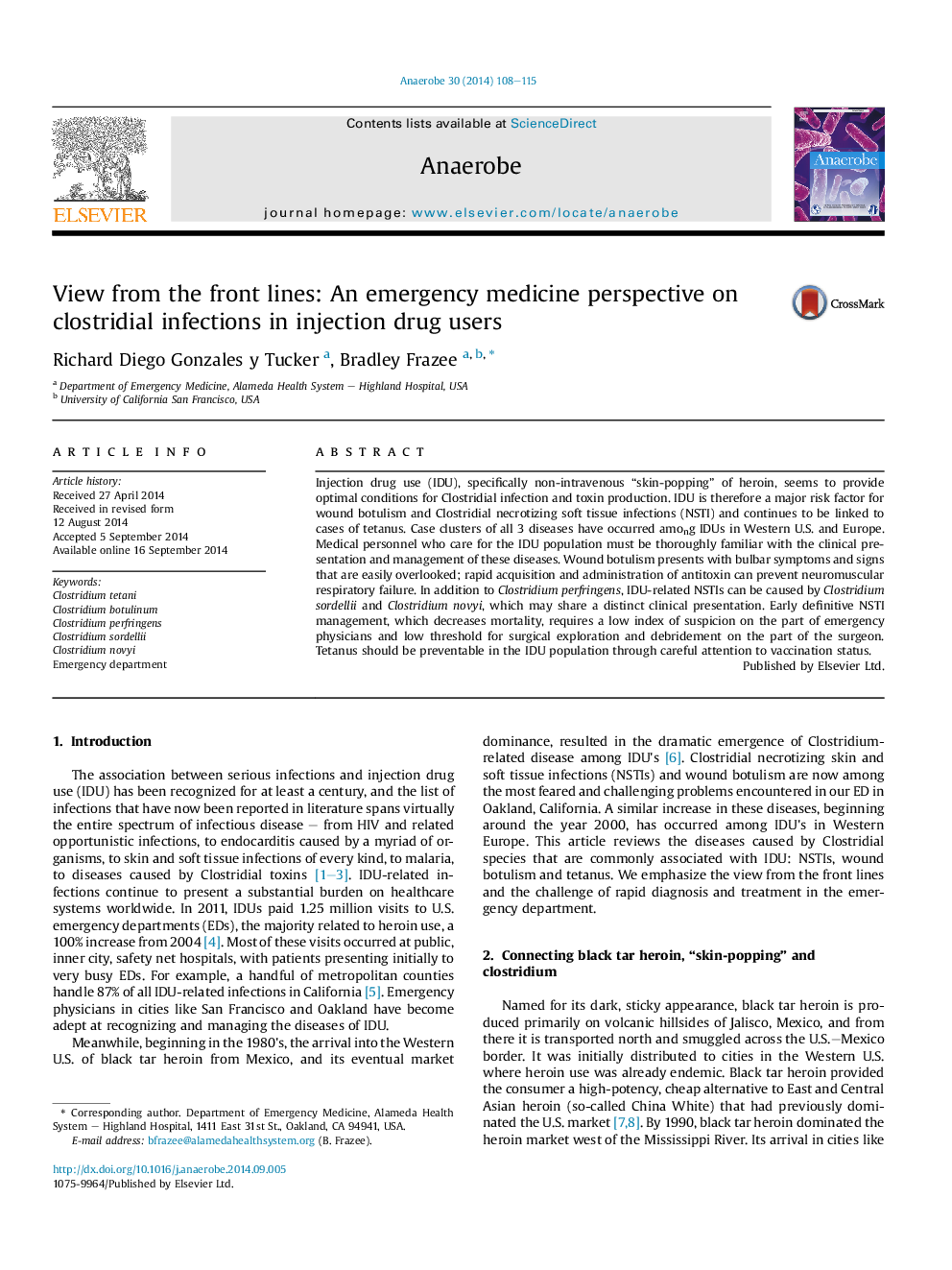| Article ID | Journal | Published Year | Pages | File Type |
|---|---|---|---|---|
| 3395025 | Anaerobe | 2014 | 8 Pages |
Injection drug use (IDU), specifically non-intravenous “skin-popping” of heroin, seems to provide optimal conditions for Clostridial infection and toxin production. IDU is therefore a major risk factor for wound botulism and Clostridial necrotizing soft tissue infections (NSTI) and continues to be linked to cases of tetanus. Case clusters of all 3 diseases have occurred among IDUs in Western U.S. and Europe. Medical personnel who care for the IDU population must be thoroughly familiar with the clinical presentation and management of these diseases. Wound botulism presents with bulbar symptoms and signs that are easily overlooked; rapid acquisition and administration of antitoxin can prevent neuromuscular respiratory failure. In addition to Clostridium perfringens, IDU-related NSTIs can be caused by Clostridium sordellii and Clostridium novyi, which may share a distinct clinical presentation. Early definitive NSTI management, which decreases mortality, requires a low index of suspicion on the part of emergency physicians and low threshold for surgical exploration and debridement on the part of the surgeon. Tetanus should be preventable in the IDU population through careful attention to vaccination status.
